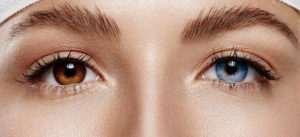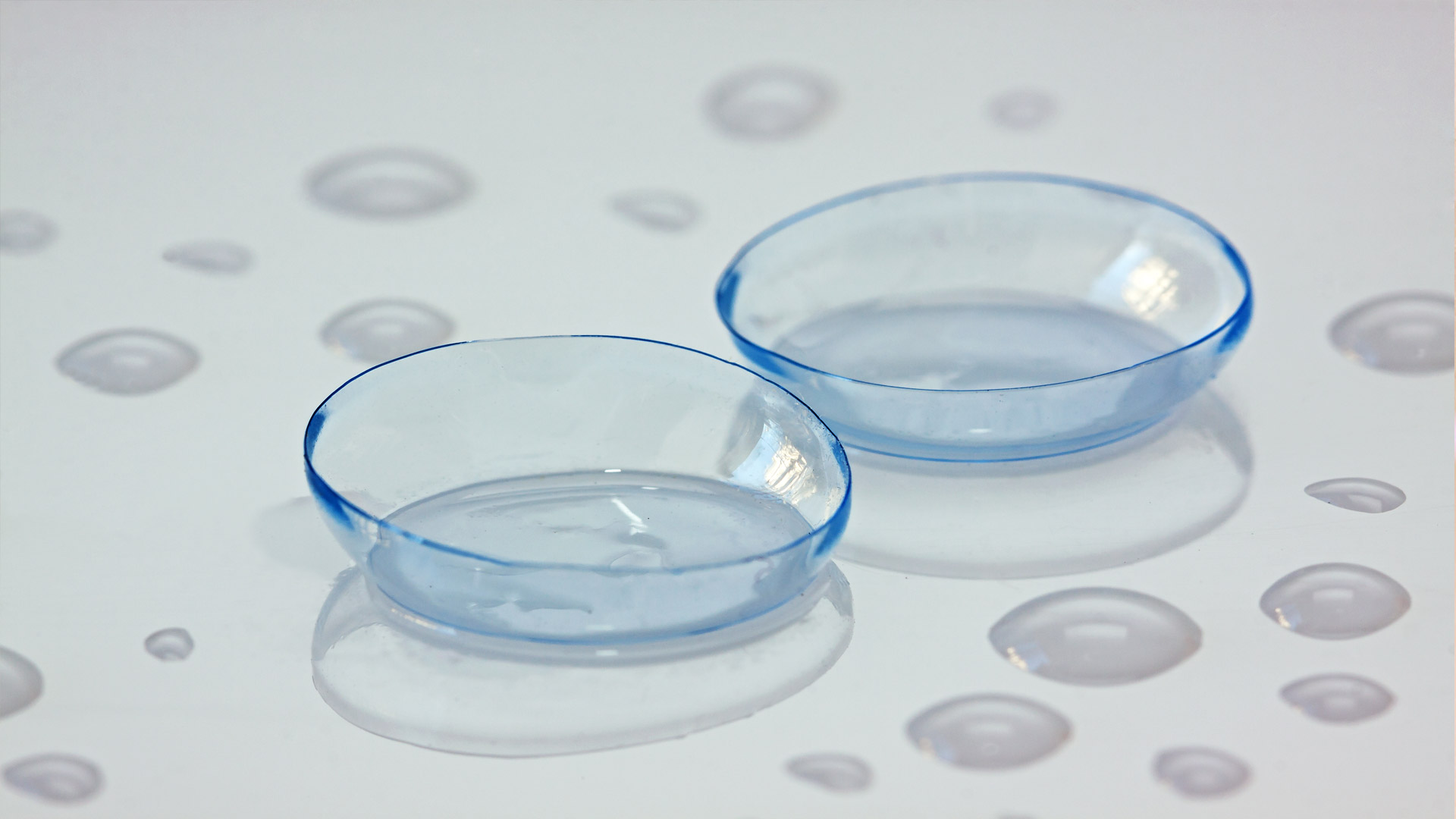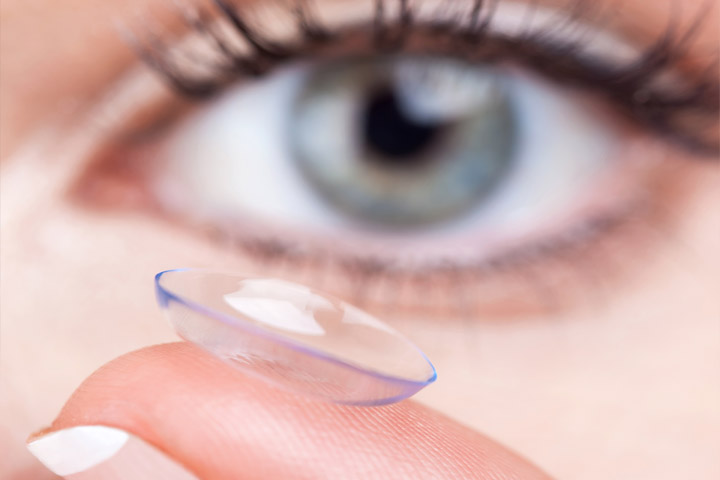We carry a wide variety of contact lenses and offer exams and fittings.
Over 30 million people wear contact lenses in the United States. When used correctly, contact lenses are a safe and convenient method of correcting your vision. Many people choose contact lenses as their primary means of vision correction, whereas others wear contact lenses only for sports or special events. We can help you find a type of contact lens that is appropriate for your lifestyle.
If you are a first time contact lens wearer, you will be given special attention to ensure that you learn to properly insert and remove your lenses, as well as safely care for your lenses. If you are an experienced wearer, we will check to be sure that your lenses are the most current available, that they are performing adequately and that your eyes are not experiencing any adverse effects from contact lens wear.
Standard disposable lenses work well for most people. However, those with high degrees of astigmatism, irregular corneas (from conditions such as keratoconus or after refractive surgery) or very dry eyes often require customized contact lenses and require several visits before a final prescription can be obtained. Dr. Jason Simonton welcomes the challenge and enjoys fitting contact lenses on those who thought that contact lenses were not a possibility.
Types of Contact Lenses
We carry an extensive range of fitting sets, so in most cases we will have lenses available for you to try on the day of your exam.
- Planned Replacement Lenses
- Daily Disposable Lenses
- Toric (ie astigmatism) Lenses
- Extended Wear Lenses
- Bifocal/Multifocal Lenses
- Colored Lenses
Custom Lenses, including:
Rigid Gas Permeable Lenses
Hybrid Lenses (i.e. SynergEyes)
Scleral Lenses
Custom soft lenses for unusual prescriptions, such as high astigmatism or for those requiring a unique multifocal design
Planned Replacement Lenses
The convenience and cost-efficiency of the planned replacement lenses make them the most common type of contact lenses on the market. The lenses are worn daily and disposed based on their replacement schedule. The most common type of replacement schedules is bi-monthly and monthly. These contacts come in a wide variety of styles and are evaluated for your comfort and visual needs.
Daily Disposable Lenses
Daily disposable lenses make up the fastest growing segment of the contact lens market. Daily disposable lenses offer the ultimate in convenience and hygiene as no solutions are needed and a fresh lens is used every time contact lenses are worn. Daily disposable lenses are ideal for children and busy adults, those prone to allergies and for those who wear contact lenses on a part-time basis only. The cost of daily disposable lenses has decreased over the years, making them very competitive with many of the two-week or monthly disposable modalities.
Toric Lenses
Toric contact lenses are used to correct astigmatism, which arises as a result of the cornea having different curvatures in the horizontal and vertical planes. Previously, it was very difficult and time consuming to fit those with astigmatism in soft contact lenses. Currently, there are toric soft contact lens options that make the fitting process much easier and the likelihood of success much higher.
Extended Wear Lenses
Newer lens materials transmit far more oxygen to the surface of your eyes than most of the older materials. The FDA has approved some contact lenses with these newer lens materials to be used on an extended wear basis. Some lenses can be worn up to 30 nights, without the need for removal. Other lenses are approved for up to 7 days of extended wear. If you are interested in wearing extended wear lenses, be sure to discuss this with your doctor so that you are fit with the proper lens and are advised of the risks and benefits of extended wear.
Multifocal Lenses
Multifocal contact lenses are contact lenses with multiple prescriptions built into a single lens. They are typically used for people who have presbyopia (>40+yrs of age) and require different prescriptions to see things far away and up close. The fitting is typically more involved than a standard contact lens fitting due to the complexity of the lens design, but once a successful fit is obtained, multifocal designs have offered many people the opportunity to say goodbye to their bifocal or reading glasses.
Gas Permeable (GP) Lenses
GPs provide exceptional optics and are the ideal choice for many patients. GPs can be used for standard prescriptions, but are typically reserved for those with irregular corneas or unusual prescriptions. They are also an excellent option for multifocal contact lens wearers.
Hybrid Lenses
A hybrid lens is a very unique style of lens that combines the comfort of a soft lens with the superior optics of a rigid gas permeable lens. Hybrid lenses are used for a variety of visual needs. Ask your doctor for more information if you are interested in hybrid lenses.
Scleral Lenses
Scleral lenses are large-diameter gas permeable contact lenses used for a variety of hard-to-fit eyes, such as those with keratoconus, post-surgical cases, or for those with severe dry eyes. Scleral lenses are specially designed to vault over the entire corneal surface and rest of the “white” part of the eye (sclera). This way of fitting allows the lens the essentially replace an irregular cornea with a perfectly smooth surface. Scleral lenses are more complex to fit than other types of contact lenses and tend to be more costly. However, they can provide significant improvement in one’s quality of life if a successful fit can be achieved.

Colored Lenses
Colored lenses are available in both prescription and non-prescription options. They can be used on a full-time basis or just on days when you want to change your look. Let your doctor know if you are interested in colored lenses as this is an important factor in determining which brand your doctor will use.
Custom Soft Lenses
Custom soft lenses are typically replaced either quarterly or monthly. Custom soft lenses are an option for those with the following types of prescriptions or patients:
- High myopia, hyperopia or astigmatism
- Those with eye curvatures that are either rounder or flatter than what can be fit with standard contact lenses
Multifocal prescriptions that cannot be fit with a standard multifocal lens


